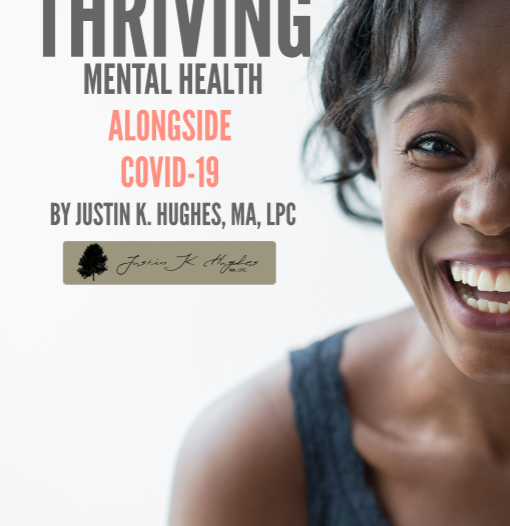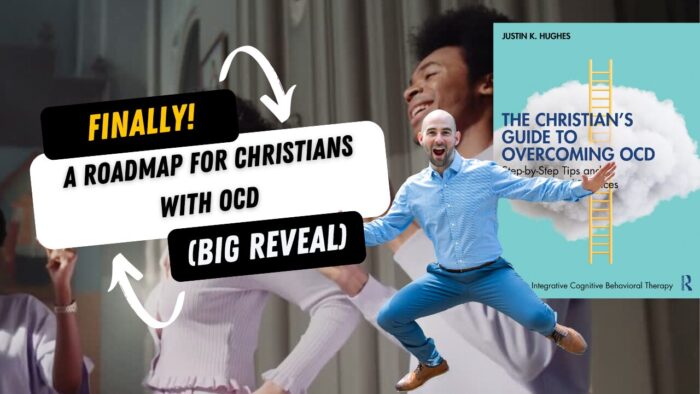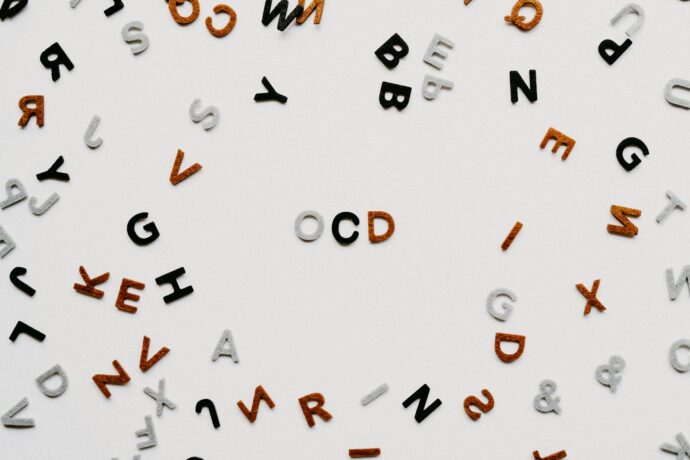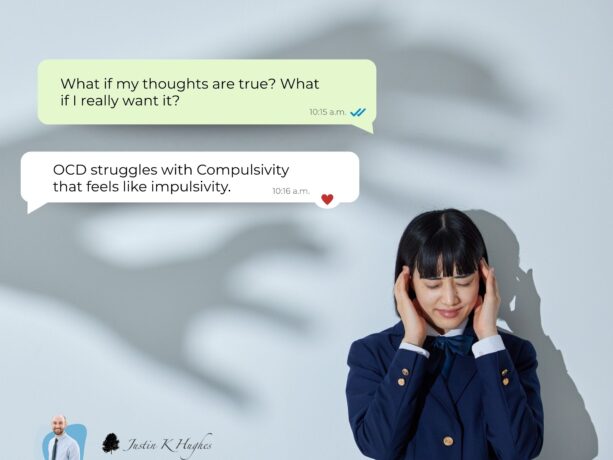
One of my first questions to a professor in my earliest IOCDF BTTI (Exposure Therapy training) at Massachusetts General Hospital was, “What happens if someone actually gets sick after a contamination exposure?” I haven’t forgotten the simplicity of the answer that went something like this: “People get sick all the time. Yes, that might create some additional hesitancy to face exposures at first, but you have an incredible opportunity for learning.” Life involves not only facing bad things that don’t happen, but also bad things that do.
Exposure Therapy involves the systematic confrontation of fearful triggers while reducing and eliminating fearful, pathological responses. In the end, it can relieve a lot of suffering.
During this global pandemic of COVID-19, people actually are getting sick. One might not think the principles of exposure therapy would apply (i.e., “Don’t you do exposure therapy for risks that don’t happen?”). Quite the contrary. I believe exposure therapy provides one of the best evidence-based ways forward, helping us stand up to fear we need to squarely face. So today, whether you have a disorder or not, there is an opportunity for learning and growth in the face of COVID-19.
This guide, “Thriving Mental Health Alongside COVID-19,” is dedicated to my clients and the IOCDF and provides a thorough summary of the main steps of Exposure Therapy with me, with key tips for general mental health. May you be enriched by this!
~Justin
Intro
Whether you have a mental disorder or not, there is an opportunity for learning and growth in the face of COVID-19 (SARS-CoV-2). Now, more than ever, we need stable footing to stand on. People go to every extreme. You don’t have to. Mental health is about being grounded in reality, insomuch as we can grasp it.
Getting sick will happen. Yes, people die. Relationships break up and fail. Businesses go under. We might get it wrong. However…many people can experience health. Some people live with purpose and to the full (which is not the same as perfect). Relationships can be incredible. Businesses can thrive. We can get things right.
When I utilize the method of Exposure Therapy in counseling (a subset of Behavioral and Cognitive Behavioral Therapy), it involves the systematic confrontation of fearful triggers while reducing and eliminating fearful, pathological responses. It is Gold Standard treatment for OCD & Phobias, and is a first line treatment for all Anxiety Disorders and PTSD. What we think happens is that relearning occurs, which for most increases confidence and decreases disruption in life when they follow the treatment. Exposure, then, gives us two opportunities:
- To learn that we don’t have to fear something.
and/or
2. To learn we can face it anyway.
Its principles connect us to some of the best of life: face the thing you have reason to face; gain the opportunity to live more fully.
This guide is a very brief summary of the main points of the exposure therapy process with me, particularly with clients who have OCD and Anxiety. Many of my clients actually are faring better in this crisis than people I have talked to and seen in the general public- and why wouldn’t they?! They’ve been training and learning- and now it’s game-time.
Here’s the synopsis of the 10 key steps I take with clients in the exposure therapy process.
- Identify the problem, then the evidence-base, which is the “true-so-far-as-we-know-it” status (and there’s a lot of current uncertainty we all have to face). Get educated from reputable, trustworthy sources.
- Track and monitor. Develop an ongoing relationship with self-monitoring (and utilize trustworthy support to help!). What’s going well? What’s going poorly? When you are suffering or about to give into unhealthy responses, keeping a regular monitor/review gives you the chance to be proactive rather than defensive, and to catch problematic patterns before they become catastrophic. I use specific tracking forms for different disorders, but my OCD Log and Functional Assessment formats work for most. Especially learn to catch compulsions/safety behaviors/rituals and all the subtle ways you may give into them- they reinforce fear.
- Identify and make a “roadmap” of what you need to face. This is commonly done in my practice with a Hierarchy (click here). I use an advanced electronic Hierarchy and tracking with most clients that is quite a bit fuller than this one, but you can get the idea
- Exposure: Practice, practice, practice. The heart of the treatment I do most of the time is Exposure Therapy as already noted above. Dr. Abramowitz’s “Exposure Practice Form” is my favorite form/guide to help overview keys for what a person wants to consider while they do an exposure. To be clear, this area often needs a lot of professional oversight to get going the right direction. There’s a lot of small and large nuances alike that can impact how exposure goes- you can grab a quick reference handout to help: ERP Tips for OCD.
- Get support- train loved ones who are receptive, but who have been accommodating or lashing out against your unhealthy patterns to enact a systematic plan with you rather than responding out of chaos. Here’s my full guide, “Supporting Your Loved One With OCD.”
- Restructure Faulty Beliefs and Cognitive Distortions. In OCD, particularly in ERP treatment, much of the work is not in “replacing negative/intrusive thoughts;” this is a common error that leads to more engagement (ritual) with obsessions- OCD ‘spits up’ a high occurrence of intrusive, irrational thoughts. The cognitive portion of evidence-based CBT utilizes methods such as Cognitive Restructuring to examine the relationship between faulty beliefs and the maintenance of such problematic responses like compulsions.
- Practice mindfulness. No, not some mystical notion. Mindfulness in simple form is simply contact with the present moment. We typically need some strong skills here to lean into fear, simply because fear leads to lack of mindfulness. You can go to my Exposure-Friendly Mindfulness guide with the accompanying video to integrate this support I use with most clients.
- Determine your values and beliefs. Our overall beliefs and values are crucial in guiding our day to day lives, our choices, and behaviors. Many counselors, myself included, utilize Acceptance and Commitment Therapy (ACT), which is a transtheoretical approach to stay present, engage with identified values and commitments, stay flexible, and make adjustments where necessary. Furthermore, I help clients identify and develop their belief systems, including spiritual, faith, and religious beliefs. Often overlooked in the rooms of clinicians, most people signify spirituality is significant to them, and the research literature gives support for clinicians to help clients (ethically, of course) integrate these when willing.
- Problem solving problems. There will always be problems; we give problems to our children to learn to solve so they grow. Having a good team around you will assist in growth rather than defeat (See Step 1 & 5- Identify the Problem/Getting Educated & Support). This is one of the big differences a therapist and/or a specialist can make. Most anyone can get a workbook on OCD, GAD, etc. Workshopping problems is part of my specialty in getting “unstuck.” Common detours to treatment are comorbid diagnoses like substance abuse and depression, and any pattern of getting off track from the heart of exposure- being able to tolerate fear without pathologically getting off track.
- Review & Relapse Prevention. How is it going? What am I learning? Steps 2 and 5 above (Tracking & Support) will help sustain a strong structure for accountability and growth- for the short term or long-haul. You can use my handout ERP Tips for OCD and Dr. Jonathan Abramowitz’s Exposure Practice Form to make sure you’re on track. Shala Nicely wrote a great handout on Relapse Prevention, which is in essence preparing for what to expect after treatment and how to maintain and grow moving forward, even despite challenging situations. This is the heart of exposure: learn to face challenges consistently, improve your life.
There you have it. 10 key areas covered in the Exposure Therapy process with me. These are tools for successful living, not just disorder management. I wish you all the best on your journey. Thanks for letting me join it in a small way.
General Mental Health Tips
In this unusual time where the world is facing a pandemic with much uncertainty, having a fairly exhaustive, yet quick guide to mental health is needed. Here are important components of mental health, including helpful resources, articles, and free tools.
Be assertive. Just as I have transitioned to telehealth and it requires more verbal cues being used, increase your assertiveness with anyone in a close space. It’s easy to take for granted our daily routines, but the closer we get to a person, the more necessity there is to make what is covert overt. Check out the ACBT’s “Assertiveness Training Fact Sheet” and check out the many benefits in the Mayo Clinic’s “Stress Management” guide.
Be careful of Cognitive Distortions. A common cognitive distortion is All-or-Nothing Thinking: “Well, I blew it! I ate the donut I said I wouldn’t eat. I failed and might as well continue to eat more.” Take my exercise this week, for example. I missed an exercise this week and started to blow it off since I “missed my chance.” But fortunately when I had a free moment later in the week with more clarity, I was able to take the opportunity to work it in, though differently. Flexibility is key.
Don’t over-consume on substances. Caffeine and alcohol are certainly the most popular substances to look out for (well, and nicotine, but that’s not in the context of healthy living).
Downtime/Quiet/Mindfulness. The importance of giving our brain pauses and rest cannot be overstated. Scientific American provides insight as to “Why Your Brain Needs More Downtime.” For those of us with disorders, we need even more intentionality to slow down pathological processes that are automatic or deeply ingrained, such as linking fearful thoughts with avoidant behavior or rituals. Remember that fear narrows focus; it takes one’s attentional resources away from the big picture. Dr. Jonathan Abramowitz has provided a wonderful overview of the “Physiology of Anxiety” and explains biologically how this occurs. For mindfulness, you can find a guide with video in “Mindfulness Exercise [Exposure-Friendly].”
In this modern era, minimizing screen time is an important discipline to practice. Whether this if thinking about children (see this JAMA article) or anyone (check out NAMI), it’s now becoming well known that we need to be wise about the use of technology in a number of ways.
Exercise. Possibly tied with sleep and nutrition as the most underutilized natural treatments for a range of conditions, exercise is inextricably linked to mental health. “The Mental Health Benefits of Exercise” by Helpguide.org is a good quick reference on this topic. In fact, outside of medication, exercise may be one of the best things a person with AD/HD can do to treat it! ADDitude reviews the research on this, particularly for children.
If you’re stuck in the house, there are ways to get creative! Make a game with a fitness tracker! Compete with others; set up prizes for yourself or children! Get outside where you can and get moving. With telehealth, I have had to double-down on my intentional exercise, because even walking to the restroom is only 10 steps instead of 150. I supplement this unusual time with extra walking, keeping up with circuit training indoors, and giving myself space if I miss one of these times.
A fantastic summary from Sharma, Madaan, and Petty, 2006, follows: “Health benefits from regular exercise that should be emphasized and reinforced by every mental health professional to their patients include the following:
- Improved sleep
- Increased interest in sex
- Better endurance
- Stress relief Improvement in mood
- Increased energy and stamina
- Reduced tiredness that can increase mental alertness
- Weight reduction
- Reduced cholesterol and improved cardiovascular fitness”
Have fun!
Maybe self-evident, but we all (especially adults) need reminding to pursue fun- even the term ‘recreation’ is based on the concept of recreate- “to give new life.” In “The Benefits of Play for Adults,” Helpguide.org shares useful insights, and also PsychCentral in “8 Reasons to Make Time for Fun.”
Medication. Mental health medication (psychopharmacology) can play a necessary role in well-being (depending on the condition, medications range from being considered essential first line treatments, to unnecessary). NIMH has a tutorial on “Mental Health Medications,” (or see a pdf guide).
Normal structure. You may have heard it said that people are “creatures of habit.” Neurologically, we integrate information we don’t need to remember and it becomes second nature- we fortunately can stop thinking intentionally about how to walk, talk, eat, or even dressing ourselves (do you remember what food item you ate first or how many circles you made brushing your molars?). Our neural pathways are intimately familiar with these tasks. This is one reason it’s hard to change something so deeply ingrained. This is truly a good thing as we would be overwhelmed by having to pay attention to too many processes. Significant adjustments mix up many normal patterns- which isn’t necessarily bad, but we typically feel more stress when they are. One thing that can help in times of crisis is to return some of the usual structures in different ways. Examples might include keeping up that date night, just over video with a nice meal made at home. Or still getting up and going to bed at similar times.
Dr. Magdalena Bak-Maier, in “The neuroscience of overwhelm and how to prevent it,” points out how the nervous system goes on “autopilot” until we need to pay attention to something, but the brain has significant performance limitations and will tire with overuse. Having a lot of drains on our resources increases stress and can, with too much stress, negatively impact our functioning.
Nutrition/Diet. Truly, what we eat and how we eat has an incalculable value on how we feel. Harvard’s Healthy Eating Plate is a useful reference. The World Health Organization provides support with “Healthy Diet.” Health always requires a level of flexibility and adaptability. In stressful times, acceptance of your struggles along with realigning with values/evidence is important.
Be careful in times of stress not to overindulge on carbs and sugars- the snacky & sweet food you may feel the urge in this time to “pound”- they offer quick energy and pleasure, but are not as durable in benefits and can really impact you negatively over time with overconsumption. Check out the research article from the Indian Journal of Psychiatry for an excellent summary, particularly in relation to depression.
Prioritize. Limit inputs of information and stimulation- or your brain will do its best to force limits and push you back into homeostasis (see my article and worksheet on “Setpoints” which covers the topic).
Serve others. Loving our neighbor as ourselves is beautiful. Not only does It also impact them, but no doubt about it- we also can find much encouragement and joy in so doing. Learning and growth is often solidified when we can teach, pass along, and serve. Though “volunteering” is only one manifestation of serving others, it has robust support in the literature (Yeung, et al. 2018). Most of us don’t need to look at research articles, though, to grasp the importance of serving others. It’s good for others; it’s good for you. Win win.
Sleep. As one of the most important contributors to all aspects of health, good sleep is necessary infrastructure to good health. Harvard Health has a simple, yet useful page on “Sleep and Mental Health.” and WebMD’s overview of the detriments of lack of sleep.
Spend/Save/Give money. Work from a budget. Money is a tricky topic and is not simplistic. But a key reality is that how we use money is a reflection of- and sometimes cause of- greater health or problems we run into. Spending money within a larger budget and values is satisfying, rewarding, and enjoyable. Giving it away can help others tremendously and be powerful for our own health. Taking on unnecessary debts, overspending, being miserly or hypervigilant all in different ways lead to stress and effects on mental health. Inc. magazine / website covers “7 Reasons Mental Health Issues And Financial Issues Tend to Go Hand-in-Hand (And It Has Nothing to Do With the Cost of Treatment).” Psychology Today provides “What Your Financial Health Says About Your Mental Health.” Mind.UK.Org has “Money and Mental Health.” You may want to consider following a course, getting a financial planner (many are free and work off commission, some are for fee), or utilizing many reputable resources available.
Socialize. We are social beings. Direct contact can release neurotransmitters, and even a high five can release oxytocin, lowering cortisol and decreasing stress (cf. Susan Pinker, through Medical News Today). Wow! During this unusual time of “shelter-in-place” and quarantines, this is difficult. But for the time being, even our technology, phones, letters, or writing on cardboard and standing outside a window can suffice! Psychology Today points out several benefits of socialization, including living longer and even decreasing dementia.
Spirituality/Religion/Faith. Refer to Step 8 above for more information; I understand not everyone will consider this important. But if you do, are you digging deep into things? Living congruently? Allowing yourself to ask questions and pursue guidance / support / practices around what is meaningful?
Sunlight. Not only is sunlight important in Vitamin D production, natural light is linked with all numerous biological processes ranging from sleep to mood and much more. If you must be indoors or have limitations on natural light, find ways to maximize it. There are even specific treatments and options that utilize light to treat depression. See Psychiatric Times.
Supplements. There is good evidence that several supplements can aid in mental health, particularly depression and/or anxiety. Always follow the advice of your doctor, as some supplements can interact with other medications being taken. Some of the most common supplements linked with various facets of mental health are Vitamin D, B Complex, Omega-3 Fatty Acids, and others. Medical News Today has compiled “Top 10 evidence based supplements for anxiety.”
Track and Process Emotions and Thoughts. This was already covered in my 10 tips section above (Step 2). An additional comment to add is that exploring and processing emotions really have value. When I am working on exposure therapy, especially in OCD, I often need to redirect clients early on from “processing” their thoughts. OCD tricks the brain into thinking the content of obsessions is important- and the more a person ruminates on it, the more they get stuck. We certainly identify thoughts and emotions; during exposure we do not “process” them- we face the distress head on.
But in the rest of life, we need to talk through difficult things, share things we’re excited about, write out our thoughts, and more. It is so important we feel validated as people and that we validate others. Thoughts, feelings, sensations- these are all different inputs giving us information. Our interpretation of them and how we respond is another thing entirely. Key point: ensure you have outlets to identify your thoughts and emotions!
Your context is your context- don’t compare. “Comparison is the thief of joy.” When we look at where we are, don’t let your or others’ expectations crowd out what you’re supposed to be about. I really wrestled with this one at the beginning of staying more at home. Many of my peers had more time on their hands, were doing more in other ways like time with family and being increasingly available to other people. I was busier, and I felt internal pressure to do the same as them. I didn’t. I don’t.
I’ve also seen a lot of posts that there’s no right or wrong way to feel at this time. True. Feelings are feelings. We don’t have to act on them, but they are important to acknowledge.
Writer’s Note
I’ve been told by academic professors that shorter papers are much more challenging than longer ones- I concur. When attempting to write a brief guide on mental health, how can one summarize such depths? I’m leaning into some of my own exposure work by letting things be- even if they feel “imperfect?” And frankly, it always will be imperfect, because I’m human and finite. If I missed something you think is important, or if you like this guide, please feel free to write a note and let me know!
On that topic of exposure, I speak very positively concerning outcomes with exposure therapy. This is based in the evidence for most who stick with exposure therapy (you can dig into my ERP for OCD MH Clinician Brochure that I provide other professionals or any presentation on my OCD page to educate on exposure therapy to see the stats and references). But with any treatment, there are limits and complex factors, and no treatment works for everyone. I hope you never feel ashamed if your story is different from these guidelines. It is one of the reasons to find a really excellent treatment provider- they won’t just look at your case in a black and white fashion but will keep exploring solutions when warranted.
Thanks
Dedicated to:
- My clients who inspire me every day
- The IOCDF who helped develop my love for exposure therapy
A big thanks to Unsplash talent for stunning photography
Disclaimer: please see my full disclaimer to the right. Education, not therapy.








Leave a Reply